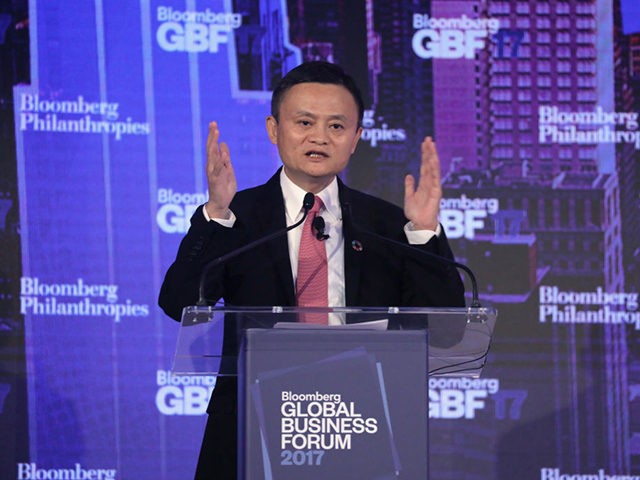Jack Ma, the tech billionaire who co-founded Alibaba and was once considered the richest man in China, accepted a post at Tokyo College on Monday — effectively retiring to Japan only a few months after his ballyhooed return to China at the urging of the government that ruined and exiled him for criticizing the Chinese Communist Party.
Ma worked as an English teacher before founding Alibaba with a group of friends and supporters in 1999. The company grew from a dinner-table operation into a tech titan with $54 billion in annual revenues at its peak, but Ma remained active in educational issues.
As Ma often told the story, he was born into a family of modest means and failed his college entrance exams twice, and he was rejected by over a dozen prospective employers before securing a position as an English teacher. This gave him a lifelong appreciation for the value of a good education.
Ironically, the skill that paid his bills was not acquired in school – he learned English from tourists who flooded into his hometown of Hangzhou after a visit from U.S. President Richard Nixon in 1972 when Ma was eight years old.
Ma has said he left his teaching career because his very first Internet search in 1995 was for the word “beer,” and when no Chinese beers were included in the search results, he saw an opportunity to create a Chinese equivalent to search engine giants like Google and Yahoo.
Ma’s meteoric rise to wealth and influence came to an abrupt end in October 2020, when he criticized the Chinese Communist Party for strangling tech innovation with heavy-handed regulations at a conference in Shanghai.
The formerly outspoken and flamboyant billionaire promptly vanished for three months and was scrubbed from government websites, while Chinese regulators tore into Alibaba, Ma’s gigantic financial corporation the Ant Group, and other tech companies. Billions of dollars of value were erased from the Chinese tech industry, and from Ma’s personal net worth, in a bid to remind high-rolling entrepreneurs that the Chinese Communist Party and its bosses are the true owners of every asset in China.
Ma eventually resurfaced at a video conference with teachers in January 2021, displaying a far more subdued personality and avoiding all criticism of the Chinese Communist Party. He kept a very low profile for the next year. In December 2022, international business publications were surprised to report that Ma had been living in quiet exile in Japan with his family for the previous six months. Friends said he had developed an interest in painting and collecting artwork.
Ma finally returned to China in March to visit schools in his old hometown of Hangzhou, where Alibaba headquarters is located. Communist Party insiders said Ma was invited to come back to China by Premier Li Qiang, who passed the invitation through Ma’s associates in Japan. Li reportedly felt bringing Ma back to China would reassure nervous domestic entrepreneurs and foreign investors, signaling that the age of regulatory crackdowns and coronavirus lockdowns was over.
“If even Jack Ma is perceived as having been pardoned, everyone else should feel safe and welcome,” King’s College London senior lecturer Xin Sun explained in March.
Ma had spoken of retiring from Alibaba and resuming his teaching career even before his fateful Shanghai conference in 2020, but some observers were still surprised at the sudden end of his “public-facing role” as a cheerleader for the Chinese business sector. Ma took up his position as a visiting professor on the very day that Tokyo College announced it.
The college said on Monday that Ma would assist with research into “sustainable agriculture and food production,” an interest he revealed when the international press found him living in Japan last year. Ma was also hired to “share his rich experience and pioneering knowledge on entrepreneurship, corporate management, and innovation” with students and faculty.

COMMENTS
Please let us know if you're having issues with commenting.